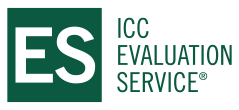The following is a joint article by ICC-ES and EOTA.
Conformity assessment is critical to the safety of residents everywhere. Consumers worldwide have long been demanding safer building products. They require characteristics such as safety, reliability, compatibility, energy efficiency, sustainability, and effectiveness to be thoroughly examined—conformity assessment is the solution.
For manufacturers, the accomplishment of product assessment adds a level of quality and customer assurance in one’s capabilities and product(s). For authorities having jurisdiction, evaluations completed by independent technical assessment bodies are the best tool available to clear products for installation/use with ease of mind.
ICC Evaluation Service (ICC-ES) is recognized in providing conformity assessment for building and plumbing products worldwide, including the US, Mexico, Canada, Australia, New Zealand, and the MENA region.
ICC-ES has been working diligently with EOTA for many years, in an effort to align technical specifications across both entities. This cross-licensing agreement, currently in place, allows both sides to use copyrighted technical content for each other’s specifications. The agreement was put in place to streamline product evaluation and assessment for both American and European manufacturers of building products. Since November 2020, ICC-ES also has affiliate status in EOTA.
A challenge many regions face is a lack of, or delays in the development of, thoroughly vetted criteria for innovative products, such as those provided by ICC-ES Acceptance Criteria (AC) or EOTA European Assessment Documents (EADs). Both systems effectively respond to this challenge.
ACs are developed in cooperation with the client and conformity assessment body and are vetted by a committee of experts before approval is granted. Similarly, EADs are prepared in response to the client’s assessment needs and undergo a stringent peer review and legislative review before being published in the Official Journal of the European Union.
ACs and EADs reflect trends in the construction industry. For example, the modular building industry has grown dramatically in the U.S. and abroad. Many contractors are now using some form of offsite construction methods, including pods, booths, and private spaces within buildings. AC519 for Enclosed Booths for Installation Inside New and Existing Buildings addresses local variants of the building code. Similarly, AC462 for Structural Building Materials from Intermodal Shipping Containers was developed to support this innovative building material segment. Shipping containers are currently being repurposed and converted into a variety of residential, commercial, and industrial facilities including office buildings, storage units, pop-up restaurants and even temporary hospital or medical facilities. ICC-ES has issued a number of evaluation reports to AC519 and AC462 for a variety of satisfied clients.
Current European trends include seismic design (e.g., EADs 332347-00-0601-v01 for connectors for strengthening concrete structures or EAD 331151-00-0604 for plastic anchors for facade claddings) and reusable products (e.g., EAD 170005-00-0305 for recycled clay masonry units). The assessment of reusable products often requires a one-on-one approach. The ETA procedure enables a cost-effective assessment of such products granting them access to the entire EU market.
ICC-ES evaluation reports are often used as a basis for product approval by local authorities in the US. The product evaluation process starts with an independent, rigorous review of industry standards, product test data and specifications. Qualifying inspections of product manufacturing quality control are also conducted, and an evaluation report is then issued to the building product manufacturer. The evaluation report authorizes the manufacturer to apply the ICC-ES mark of conformity to their product as proof of code compliance. Throughout the life of an evaluation report, continuous compliance inspections are periodically conducted to ensure that no unauthorized changes have occurred in the manufacturing process, and that the product has not varied from what was originally evaluated. Selection and approval of building products is difficult as is, however ICC-ES reports can help streamline critical decision-making.
European Technical Assessments (ETAs) are also the result of a thorough evaluation of the performance of the product. They are available for all products that are not entirely covered by an existing harmonized European standard (hEN). The ETA document starts with the description and identification of the product and its intended use. They then detail the product performance in relation to aspects such as stability, fire safety, environmental performance, etc. Last but not least, the applicable AVCP (Assessment and Verification of Constancy of Performance) system, the EU’s mandatory quality assurance and/or certification scheme for products, is given.
ETAs serve as a basis for CE marking, which gives the assessed products access to the entire European market. They provide independent and reliable product performance information that is aligned with European design and execution standards (Eurocodes) and can be compared against the national requirements existing in different EU countries.
Product assessment is a matter of confidence. Harmonization of technical specifications across the globe is beneficial for local authorities for approval of installation, but more importantly, it is beneficial for the safety of consumers. Conformity assessment for building products matter because at the end of the day, human lives are at stake.
For more information on global conformity assessment with ICC-ES, download a free guide here.

